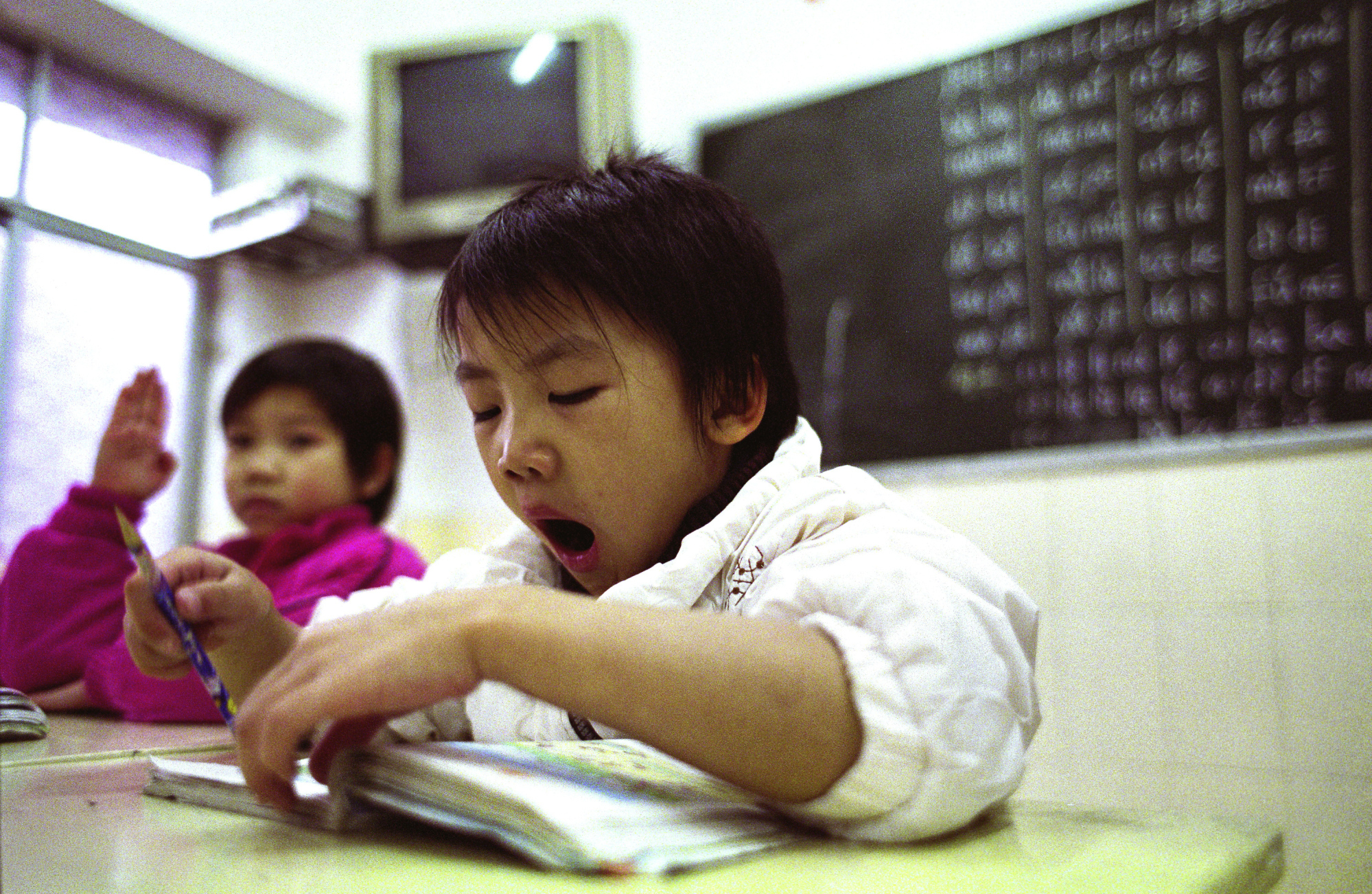
China to include pupils’ sleep hours in schools’ evaluations to counter widespread sleep deprivation among children
- The Ministry of Education has called on schools to find ways to ensure students get enough sleep, and will make it part of schools’ appraisals
- Sleep deprivation remains a common issue among children across China as they face academic pressures and other activities, a sleep specialist says
Widespread sleep deprivation among Chinese children has prompted the government to include students’ sleep hours in its appraisal of schools.
The Ministry of Education has called on schools to find ways to ensure students get enough sleep, and will make it part of the school’s evaluation, according to a recent speech by Education Minister Chen Baosheng.
About 63 per cent of Chinese children aged between six and 17 slept less than eight hours a day, a 2019 report by the Chinese Sleep Research Society showed.

According to the Centres for Disease Control and Prevention in the United States, primary school students aged six to 12 are advised to get nine to 12 hours sleep, while secondary school students, aged from 13 to 18, are suggested to get between eight to 10 hours.
The minister said the schools should work out their own measures to ensure enough sleep for students and monitor their sleep hours, while local educational authorities will include the results in their evaluations, without providing further explanation.
No more glorifying sleep deprivation in Hong Kong
Dr Wang Guanghai, a clinical psychologist and sleep specialist at the Shanghai Children’s Medical Centre, welcomed the minister’s pledge because research had shown that school policies, in particular delaying school start time, can have a major impact on children’s sleep patterns.
Shanghai and Hong Kong researchers who examined the sleep patterns of children aged six to 11 over a 10-year period found sleep duration was higher in Shanghai where the school start time was delayed. Sleep duration decreased for Hong Kong students, where the school start time was made earlier during the observed decade.
The results showed that in Hong Kong, around 40 per cent of the children got less than nine hours’ sleep a night in 2003, but that rose to 45 per cent (boys) and 50 per cent (girls) in 2012. In Shanghai, around 16 per cent of those surveyed said they slept less than nine hours in 2005, but this percentage fell to 11 per cent in 2014.

“Many have to do their homework until 11pm and rise at 6am. Some of my patients even study until 1am,” said Wang. Longer screen exposure had also led to sleep loss, especially for children in home confinement as the coronavirus pandemic continues, he added.
While it’s a global trend that children have been sleeping less over the past century, sleep duration for those in China drops drastically after they enter primary school, compared with their peers in Europe and America. Wang said this could be partially explained by relatively higher academic load in China and earlier school start times.
People tend to equate sleeping long hours with not being diligent
In fact, the same is true in much of the rest of East Asia. In Hong Kong, the average daily sleeping time was estimated to be 8.7 hours for students aged 10 to 12, and 7.3 hours for those aged 13 to 15 in 2015, according to the Research Office of Hong Kong’s Legislative Council Secretariat.
In Japan, 85 per cent of primary school students went to bed by 11pm on school nights, The Wall Street Journal reported, quoting a survey by the Japanese education ministry in 2015. About half of secondary school students went to bed after midnight, including 16 per cent who said they were up until after 1am, the survey found.

Overall, children in both Hong Kong and Japan were among the most sleep-deprived populations in the world, according to a 2018 report issued by sports training computer maker Polar Electro’s Japan branch. The former slept an average of 6.8 hours and the latter slept 6.6 hours, the report said.
Wang said there is a cultural reason for sleep deprivation in East Asia.
“People tend to equate sleeping long hours with not being diligent,” he said. “For example, in China, we traditionally worship the sacrifice of sleep time for academic study – we have this widely praised story of [political strategist] Su Qin who tied his hair on the house beam and jabbed his side with a needle to keep himself awake while studying.”

Also, competition in the region was fiercer, not just for kids, but also adults. “To a large extent, children’s sleep patterns today are affected by their parents’ [patterns]. When the parents work late, the whole family’s sleep schedule may be postponed,” he said.
Insufficient sleep has also been linked to depression and anxiety, which can sometimes lead to self-harming behaviours, Wang added.

